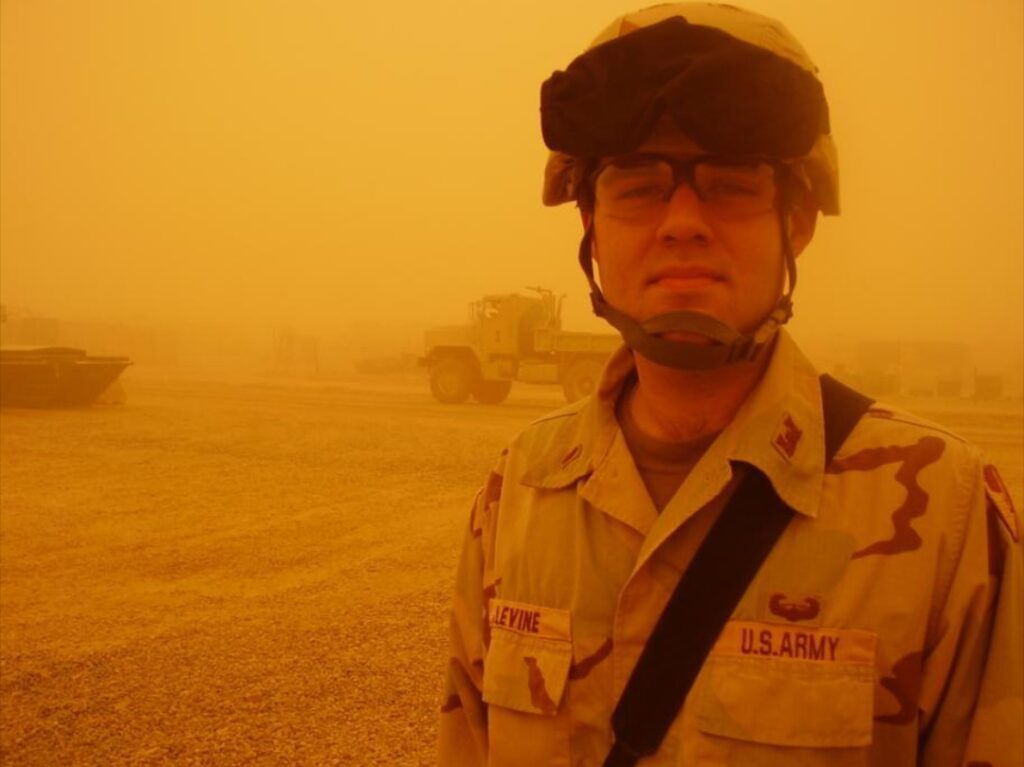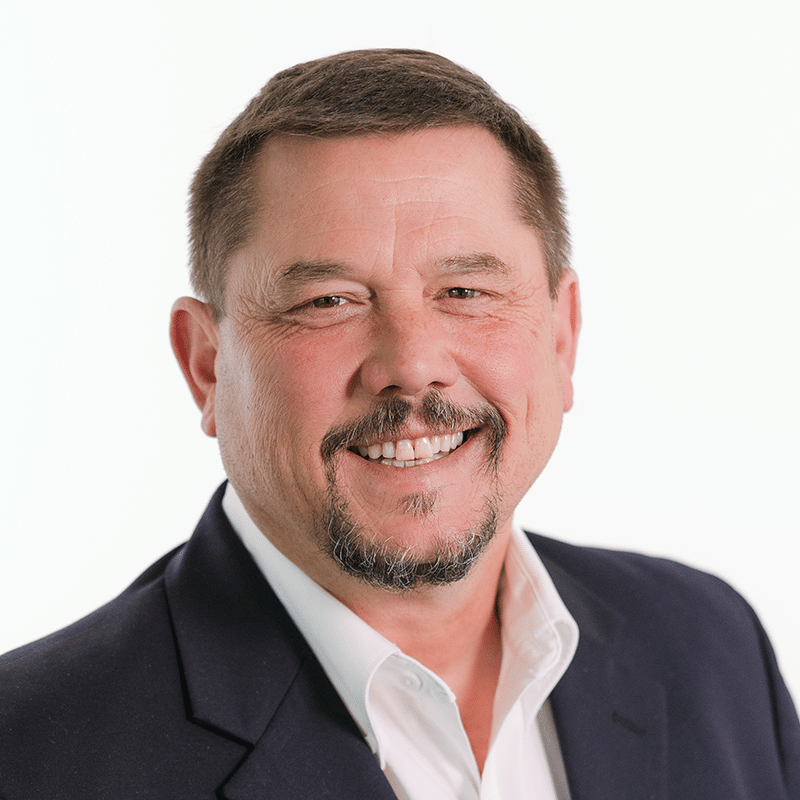
Veterans play a vital role in the U.S. solar industry, with more than 30,000 veterans representing roughly 8% of today’s solar workforce.
But these numbers tell only part of the story.
Behind these stats are individuals whose journeys reflect service, resilience, and a deep commitment to teamwork. They bring invaluable skills — from leading under pressure to solving complex problems — that make them a natural fit for roles in clean energy.
And their contributions are helping drive the transition to a more sustainable future.
This Veterans Day, we’re proud to spotlight two members of our team: Ben Levine and Robbie Thomas. Their stories offer a personal glimpse into their paths from military service to clean energy — and what this day means to them.
Ben Levine, Senior Software Engineer

Ben Levine’s technical approach is grounded in lessons learned at the United States Military Academy and during his military service. That background continues to shape how he solves problems and supports REC Solar’s digital team.
Here’s a look at Ben’s story, in his own words:
What inspired you to join the military, and in what role did you serve?
I would say my parents instilled in me a strong sense of duty to give back. And I was also looking for some adventure.
That led me to the United States Military Academy at West Point just a few weeks after graduating from high school. The initial experience wasn’t a big shock since I had spent the previous two years at a military boarding school.
At West Point, I played trumpet in the cadet band for my first three years and competed on my company’s intramural cross-country and orienteering teams all four years. After graduating, I was commissioned as an Engineer Officer and served with the 36th Engineer Group (now Brigade) for five years.
I was first stationed at Fort Benning, Georgia and later deployed to Baghdad, Iraq in 2005, where I worked in route clearance and construction operations for a year. In 2007, I deployed from Fort Hood, Texas to Afghanistan, focusing primarily on horizontal construction.
What are some of the challenges veterans often face when transitioning from the military to civilian life?
In this new age of technology, there is an epidemic of loneliness — and veterans are particularly impacted after leaving the service. I felt a loss of belonging after leaving service.
I always encourage veterans to connect with other veterans because building a support network is crucial. Older veterans and the Department of Veterans Affairs can be great resources.
What brought you to REC Solar, and what do you do in your role today?
Before joining REC Solar, I developed Windows desktop applications for a structured credit investment team. However, I had a strong interest in web development and wanted to explore that further. I was brought into REC Solar as a full stack developer to support and enhance internal tools and applications.
Are there any problem-solving skills from your military service that you find especially useful in your current role?
Maintaining a positive attitude when facing tough technical challenges has been invaluable. Adaptability has also played a key role, especially as my responsibilities span our in-house applications that are constantly evolving.
How has your time in the military shaped who you are today, and how does it influence your perspective on teamwork and collaboration at REC Solar?
Military service certainly gives you a unique perspective on hardship, which can help you keep a positive attitude in tough situations. I believe my experiences have also given me greater empathy and patience with colleagues.
It’s also reinforced for me the incredible things that can happen when people work together toward a shared goal that’s greater than their own personal needs.
Robbie Thomas, VP of Project Management

Robbie Thomas spent years in the U.S. Navy, learning to guide complex operations under pressure. Today, he brings that same focus and leadership to his role as Vice President of Project Management.
In Robbie’s words, he shares his journey from military service to clean energy, how his experiences shape his work, and what this day means to him.
What inspired you to join the U.S. Navy?
My family has a history of military service. When I was uncertain about what I wanted to do with my future, I thought spending a few years in the service would help prepare me for whatever path I chose.
Little did I know that I would spend the next 21 years doing something that I absolutely loved.
What inspired your career shift from the U.S. Navy to solar?
I spent the majority of my time in the Navy in the Nuclear Power community on submarines. Once I retired, I was fairly certain that I wanted to do something in the energy sector.
I am a strong believer that alternate sources of energy are the future, so I wanted to be involved in that area in some way. The Navy prepared me in so many ways to run a company, and as a result, I founded a solar EPC company and successfully installed projects all over the world.
The solar community is a unique and very inspiring community, and I enjoy working with like-minded people who are passionate about what they do.
What excites you most about solar and clean energy?
We have just realized the smallest capabilities of what is possible with renewable energy.
I think that technological changes will open the door for a much more widely available power source, and our industry will continue to grow and flourish for decades to come.
How does your military experience and skills shape your approach today in your role as VP of Project Management?
My experience in the Navy provided very challenging leadership opportunities related to personnel and project management.
In the military, the goal of the team is mission accomplishment. Everyone must come together and do their part for the mission to be successful.
The same is true in business, especially construction. Every member of the team must do their part for the project to be successful. Managing the team requires the same skills (leadership, communication, time management, conflict resolution, problem solving) — no matter the mission or project.
As a champion for military veterans’ recognition and wellbeing, what advice would you give to those who are facing challenges?
Many times veterans exit the military and are not prepared to be successful in the civilian environment due to a number of variables. These individuals learn valuable skills in the military and are some of the most loyal, hard-charging, promotable employees available.
However, sometimes they may have experienced some type of emotional, mental or physical trauma that requires additional resources to help prepare them to fully integrate into their new environment. Sometimes they don’t know where to get these resources or they fail to fully take advantage of them. As a result, they may struggle to excel in the civilian community.
There are many resources available for these veterans, and I encourage them to contact each one to become aware of all the assistance available to them. Many aren’t aware of counseling, training, and support resources that they can tap into.
I also think it is incumbent on other veterans and veteran services to take the initiative to reach out to as many of these folks as they can.
What does Veterans Day mean to you?
For me, Veteran’s Day is a time for the country to remember all those who have and continue to serve to preserve our way of life. We live in the greatest country in the world and that freedom came at great expense.
I think something as simple as shaking the hand of someone wearing a service-related hat and thanking them for their service is a great way to recognize and show them your appreciation.
Many choose to purchase or place wreaths on the graves of fallen soldiers. Visiting a veteran’s home and spending just a few moments with those folks is a fantastic way to make a difference.
A commitment to service and impact
Ben and Robbie, like so many veterans, show how military service shapes people who are ready to lead, solve real problems, and keep moving forward.
On Veterans Day, and every day, we honor their service, their stories and their continued impact.
Thank you to all who have served. Your dedication inspires us all.